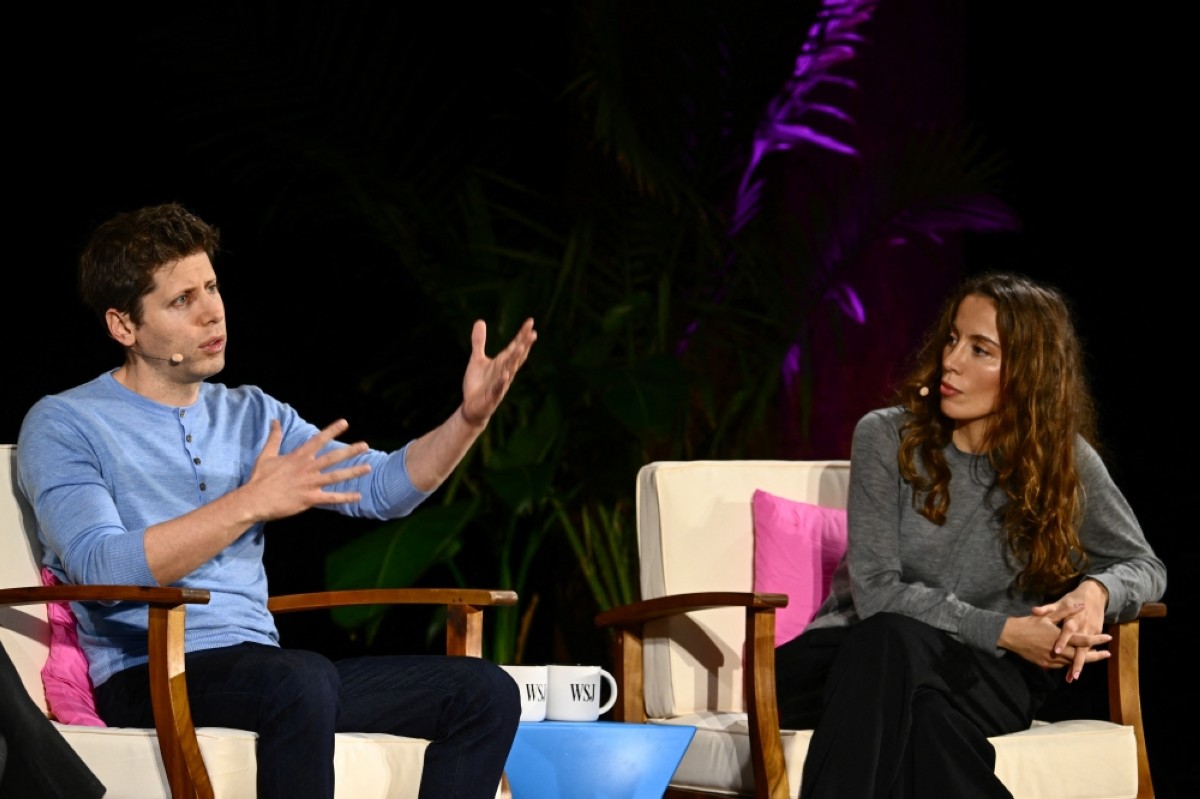SAN FRANCISCO: By recruiting former OpenAI CEO Sam Altman following his surprise ouster by ChatGPT’s parent company, Microsoft is hiring a tech industry star at the forefront of the artificial intelligence revolution.
His unexpected dismissal by the board of OpenAI sent shockwaves through Silicon Valley as the 38-year-old entrepreneur has been the public face of the company’s rapid rise in the high-stakes world of AI. Altman, together with Tesla chief Elon Musk and others, started OpenAI in 2015, creating a research company with the stated goal of building generative AI that benefits humanity.
"The technological progress we make in the next 100 years will be far larger than all we’ve made since we first controlled fire and invented the wheel,” Altman said in a 2021 blog post. ChatGPT became an instant hit when the generative AI platform was launched in November last year with its humanlike ability to answer questions to generate everything from essays to recipes and computer codes.
But the emergence of AI has also sparked concerns about the technology taking jobs away from people and even posing an existential threat to humanity. OpenAI’s board has yet to disclose the reason behind Friday’s sacking but his successor, former Twitch chief executive Emmett Shear, denied reports it was over safety concerns regarding the use of AI.
On Friday, Altman tweeted that he "loved” his time at OpenAI, adding that it was "transformative for me personally, and hopefully the world a little bit”.
Microsoft, which has financially backed OpenAI, announced on Monday that it was hiring Altman to lead a new advanced AI research team.
Born in 1985, Altman grew up in a St. Louis suburb, where he got his first computer at the age of eight, according to a profile in the New Yorker from 2016. Altman told Esquire magazine that computers and access to an online community helped him navigate being gay in a conservative part of the country. He dropped out of Stanford University to start a company, Loopt, which let smartphone users selectively share their whereabouts. Loopt was acquired in 2012 in a deal valued at $43.4 million.
He took a year off during which he "read many dozens of textbooks; I learned about the fields that I had been interested in,” the San Francisco resident has said.
He learned about nuclear engineering, synthetic biology, investing and AI. "The seeds were planted for things that worked in deep ways later,” he said. In 2014, Altman became president of Y Combinator, an "accelerator” that provides startups with guidance and funding in exchange for stakes in the young companies. — AFP
"He thinks quickly and talks quickly; intense, but in a good way,” said Industrial Microbes founder Derek Greenfield, who met Altman while his biotech startup was getting backing from Y Combinator.
Greenfield recalled Altman always dressing casually, sometimes in a T-shirt and shorts.
"He was very down to earth,” Greenfield said.
Altman left Y Combinator to put his energy into AI. "He’s a very deep thinker who is incredibly focused on getting things right,” Insider Intelligence senior director of marketing and commerce Jeremy Goldman said. Altman has proposed that combining artificial intelligence, robotics and cost-free energy could essentially enable machines to do all the work and provide a "basic income” to adults across society. "A great future isn’t complicated: we need technology to create more wealth, and policy to fairly distribute it,” Altman wrote in a blog post.
"Everything necessary will be cheap, and everyone will have enough money to be able to afford it.”
But Altman has testified before the US Congress and spoken with heads of state about AI amid pressure to regulate the technology over concerns about its risks.
Altman told the New Yorker he was a "prepper,” someone who has preparations and supplies in place to survive an apocalyptic disaster. He owns high-performance sports cars and rents planes to fly around California. On the last day of each December, he writes a list of things he wants to accomplish in the year ahead.
His personal investments include startups working on fusion energy and human life extension.
"I’m super optimistic,” he said in a podcast with TED curator Chris Anderson.
"It’s always easy to doom scroll and think about how bad things are, but the good things are really good and getting much better.” Just hours before being fired, Altman told AFP that people can’t always predict the future. "The dangerous thing... it’s all the new stuff, the known unknowns, the unknown unknowns that are going to come,” he said. –AFP


